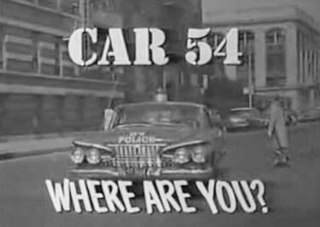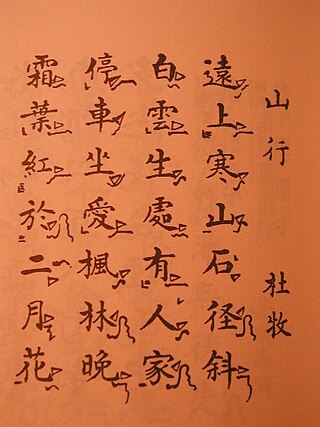
A ballad is a form of verse, often a narrative set to music. Ballads derive from the medieval French chanson balladée or ballade, which were originally "dance songs". Ballads were particularly characteristic of the popular poetry and song of Britain and Ireland from the Late Middle Ages until the 19th century. They were widely used across Europe, and later in Australia, North Africa, North America and South America.

Wilfred Edward Salter Owen MC was an English poet and soldier. He was one of the leading poets of the First World War. His war poetry on the horrors of trenches and gas warfare was much influenced by his mentor Siegfried Sassoon and stood in contrast to the public perception of war at the time and to the confidently patriotic verse written by earlier war poets such as Rupert Brooke. Among his best-known works – most of which were published posthumously – are "Dulce et Decorum est", "Insensibility", "Anthem for Doomed Youth", "Futility", "Spring Offensive" and "Strange Meeting". Owen was killed in action on 4 November 1918, a week before the war's end, at the age of 25.

This article focuses on poetry from the United Kingdom written in the English language. The article does not cover poetry from other countries where the English language is spoken, including Republican Ireland after December 1922.
Canadian poetry is poetry of or typical of Canada. The term encompasses poetry written in Canada or by Canadian people in the official languages of English and French, and an increasingly prominent body of work in both other European and Indigenous languages.

Sir Robert David Muldoon was a New Zealand politician who served as the 31st prime minister of New Zealand, from 1975 to 1984, while leader of the National Party.

Paul Muldoon is an Irish poet.

Frederick Louis MacNeice was an Irish poet and playwright, and a member of the so-called Auden Group, which also included W. H. Auden, Stephen Spender and Cecil Day-Lewis. MacNeice's body of work was widely appreciated by the public during his lifetime, due in part to his relaxed but socially and emotionally aware style. Never as overtly or simplistically political as some of his contemporaries, he expressed a humane opposition to totalitarianism as well as an acute awareness of his roots.

Car 54, Where Are You? is an American sitcom that aired on NBC from September 1961 to April 1963. Filmed in black and white, the series starred Joe E. Ross as Gunther Toody and Fred Gwynne as Francis Muldoon, two mismatched New York City police officers who patrol the fictional 53rd precinct in The Bronx. Car 54 was their patrol car.
Alan Charles Brownjohn is an English poet and novelist. He has also worked as a teacher, lecturer, critic and broadcaster.

José García Villa was a Filipino poet, literary critic, short story writer, and painter. He was awarded the National Artist of the Philippines title for literature in 1973, as well as the Guggenheim Fellowship in creative writing by Conrad Aiken. He is known to have introduced the "reversed consonance rhyme scheme" in writing poetry, as well as the extensive use of punctuation marks—especially commas, which made him known as the Comma Poet. He used the pen name Doveglion, based on the characters he derived from his own works. These animals were also explored by another poet, E. E. Cummings, in "Doveglion, Adventures in Value", a poem dedicated to Villa.
Peter McDonald is a poet, university lecturer, and writer of literary criticism. He holds the post of Christopher Tower Student and Tutor in Poetry in the English Language at Christ Church, a college of the University of Oxford.

Sylvan Muldoon was an American esotericist who promoted the concept of astral projection. According to Muldoon, astral projection is an out-of-body experience (OBE) that assumes the existence of an astral body separate from the physical body and is capable of travelling outside it. A 2012 Princeton University Press publication by Hugh Urban asserted that one of Muldoon's most popular books formed the basis for theories of the Church of Scientology founder L. Ron Hubbard which he claimed were his own.

Shigin is a performance of reciting a Japanese poem or a Chinese poem read in Japanese, each poem usually chanted by an individual or in a group. Reciting can be done loudly before a large audience, softly to a few friends, or quietly to the reciter themselves.
Nationality words link to articles with information on the nation's poetry or literature.
"Ex Oblivione" is a prose poem by American horror fiction writer H. P. Lovecraft, written in late 1920 or early 1921 and first published in The United Amateur in March 1921, under the pseudonym Ward Phillips.
Horse Latitudes is tenth collection of poetry from the Northern Irish poet Paul Muldoon. It was published by Faber and Faber on 19 October 2006. It consists of 19 sonnets, each named for a battle beginning with the letter B.

The New Zealand constitutional crisis of 1984 arose following the 1984 general election, and was caused by a major currency crisis. The crisis led the incoming government to review New Zealand's constitutional structures, which resulted in the Constitution Act 1986.
The Oregon Encyclopedia of History and Culture is a collaborative encyclopedia focused on the history and culture of the U.S. state of Oregon.

That part of the United Kingdom called Northern Ireland was created in 1922, with the partition of the island of Ireland. The majority of the population of Northern Ireland wanted to remain within the United Kingdom. Most of these were the Protestant descendants of settlers from Great Britain.

"The Little Boy Lost" is a simple lyric poem written by William Blake. This poem is part of a larger work titled Songs of Innocence which was published in the year 1789. "The Little Boy Lost" is a prelude to "The Little Boy Found".













